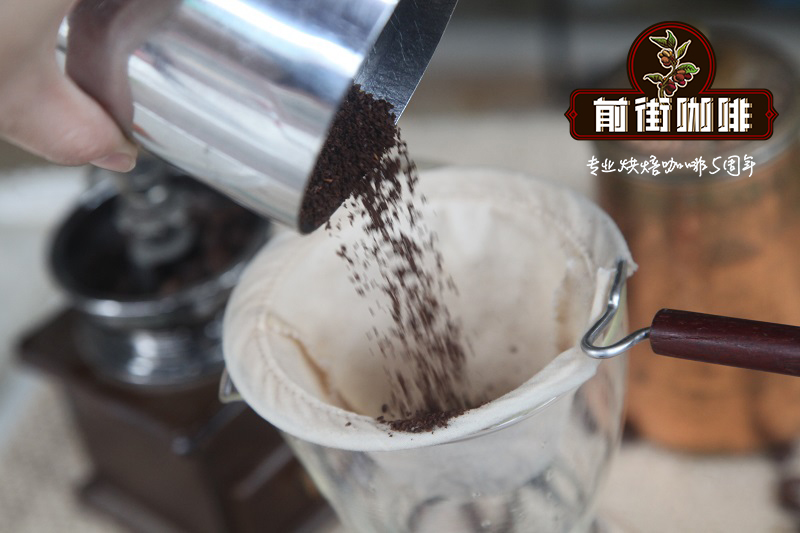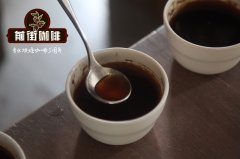Kenya AA+ single black coffee how to drink_Kenya Kibuan production area Dundu Manor coffee cultivation

Professional coffee knowledge exchange More coffee bean information Please pay attention to coffee workshop (Weixin Official Accounts cafe_style)
Kenya is one of the major coffee producing countries in East Africa, with more than six million people engaged in the coffee industry, mostly in the form of a combination of small farmers and cooperatives.
Kenya coffee trees are mostly planted at an altitude of 1400 - 2000 meters, and the growth areas include Ruiri, Thika, Kirinyaga, Mt. Kenya West, Nyeri, Kiambu and Muranga.
It is dominated by the foothills of Mt.Kenya and Aberdare.
In Kenya, there are many producing areas that strive to preserve native forest ecosystems, protect natural gene pools, support the reproduction of wild coffee varieties, and breed diverse coffee trees.
In 1930, the Kenyan unique varieties SL28 and SL34, which were bred and named by Scott Laboratories, were born in such a good environment.
According to SL Laboratory botanists, SL28 and SL34 are genetic variants.
SL28 has a mixed lineage of French missionaries, mocha and Yemeni tibica.
SL28 was bred to produce high quality, pest resistant coffee beans in large quantities.
Although SL28 did not yield as much as expected, the copper-leaf color and broad bean shape had a great sweetness, balance and complexity, with prominent citrus and dark plum characters.
SL34 and SL28 taste similar, except for complex acid, and a good sweet finish, the taste is heavier, richer and cleaner than SL28.
SL34 has French missionary, bourbon, and more Tibica pedigree.
The beans are similar in appearance to SL28, but are better able to adapt to sudden heavy rain.
It is these two important varieties that lead us to the unique Kenyan coffee style: strong and rich fruit acids, rich and intense
Gatuyu processing plant is located near Kiambu town in the north of Nairobi, Kenya. This production area is very old and famous. It continues the coffee cultivation and production management technology of colonial era. This processing plant belongs to the largest Kiambu cooperative in Kiambu town. A list of all water treatment plants owned by the Cooperative Society of Kiambu includes Riakahara, Barikongo,Kagwanja, Kirura, Korokoro, Githongo, Thiururi, Kaibu, New Thuita,Kanake, Gatuyu and Kamuchege have 12 water treatment plants. Each water treatment plant serves small coffee farmers in the vicinity, so each water treatment plant is located in each corner of Kiambu Town. This region produces high quality coffee due to its high altitude, fertile soil and natural climatic factors. More than 55% of Kenya coffee is grown by these small coffee farmers, who organize into tribal or village collective cooperatives, whose responsibility is to assist members through their water treatment plants, process, grade, dry and pack the beans, name the production batch, and wait for it to be sent to the capital Nairobi for weekly meetings.
END
Important Notice :
前街咖啡 FrontStreet Coffee has moved to new addredd:
FrontStreet Coffee Address: 315,Donghua East Road,GuangZhou
Tel:020 38364473
- Prev

Norway Talor Jorgen Kenya KainamuiAA coffee bean flavor description _ Kenya tastes good
Professional coffee knowledge exchange more coffee bean information please follow the coffee workshop (Wechat official account cafe_style) today is to introduce Kenya Kainamui. -Kainamui is a water washing plant. The Kirinyaga area in the north of Nairobi is a member of the New Ngariama Farmers' Cooperative. Kainamui is responsible for serving 1800 small coffee farms. -believe.
- Next

Kenya PB round beans Jin Luojin processing plant introduction _ Kenya PB coffee beans how to bake?
Professional coffee knowledge exchange more coffee bean information please follow Coffee Workshop (Wechat official account cafe_style) kericho songony Kenya AB TOP Mulberry Gang Leaf Cooperative SL34 single variety Kenya AB Kericho producing area, Sanggang Leaf Songonyet Cooperative, single variety SL34, washed brown sugar, raspberry. It's very sweet and tastes good. Bring it to Da this time.
Related
- Detailed explanation of Jadeite planting Land in Panamanian Jadeite Manor introduction to the grading system of Jadeite competitive bidding, Red bid, Green bid and Rose Summer
- Story of Coffee planting in Brenka region of Costa Rica Stonehenge Manor anaerobic heavy honey treatment of flavor mouth
- What's on the barrel of Blue Mountain Coffee beans?
- Can American coffee also pull flowers? How to use hot American style to pull out a good-looking pattern?
- Can you make a cold extract with coffee beans? What is the right proportion for cold-extracted coffee formula?
- Indonesian PWN Gold Mandrine Coffee Origin Features Flavor How to Chong? Mandolin coffee is American.
- A brief introduction to the flavor characteristics of Brazilian yellow bourbon coffee beans
- What is the effect of different water quality on the flavor of cold-extracted coffee? What kind of water is best for brewing coffee?
- Why do you think of Rose Summer whenever you mention Panamanian coffee?
- Introduction to the characteristics of authentic blue mountain coffee bean producing areas? What is the CIB Coffee Authority in Jamaica?

